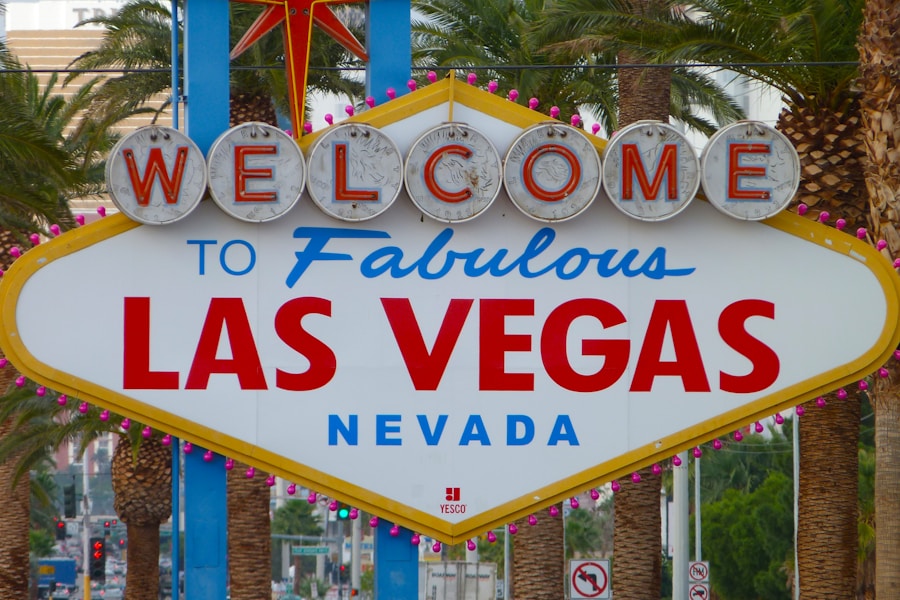As you navigate the complex landscape of Nevada’s legislative measures, one topic that stands out is State Question 1. This pivotal question has sparked discussions across the state, drawing attention from various stakeholders, including residents, lawmakers, and advocacy groups. At its core, State Question 1 seeks to address pressing issues that resonate deeply with the community, making it a focal point in the ongoing dialogue about governance and public policy in Nevada.
Understanding the nuances of this question is essential for anyone invested in the future of the state. State Question 1 is not merely a legal formality; it represents a significant shift in how certain policies are approached in Nevada. As you delve deeper into its implications, you will find that it touches on various aspects of daily life, from public safety to economic development.
The question invites you to consider not just the immediate effects but also the long-term consequences for the state and its residents. Engaging with this topic allows you to become an informed participant in the democratic process, ensuring that your voice is heard in shaping Nevada’s future.
Key Takeaways
- Nevada State Question 1 aims to expand background checks for firearm sales and transfers.
- The background of Question 1 involves efforts to address gun violence and close loopholes in existing gun laws.
- Question 1 has implications for public safety and the prevention of gun-related crimes.
- Arguments in favor of Question 1 focus on the need for comprehensive background checks to keep firearms out of the wrong hands.
- Arguments against Question 1 center on concerns about potential infringements on Second Amendment rights and the effectiveness of expanded background checks.
- The potential impact on Nevada communities includes increased safety and a reduction in gun-related incidents.
- Law enforcement plays a crucial role in enforcing Question 1 and ensuring compliance with the expanded background check requirements.
- In conclusion, the next steps involve the implementation and evaluation of Question 1 to assess its effectiveness in addressing gun violence in Nevada.
The Background of Question 1
To fully grasp the significance of State Question 1, it is crucial to explore its background. This question emerged from a growing recognition of the need for reform in specific areas of governance and public policy. Over the years, Nevada has faced challenges that have prompted citizens and lawmakers alike to seek innovative solutions.
The origins of Question 1 can be traced back to grassroots movements and advocacy efforts aimed at addressing these challenges head-on. As you look into the history surrounding State Question 1, you will discover that it is rooted in a desire for change. Various stakeholders have come together to advocate for reforms that reflect the evolving needs of Nevada’s diverse population.
This collaborative effort has led to a proposal that not only aims to rectify existing issues but also sets a precedent for future legislative initiatives. Understanding this context will help you appreciate the motivations behind Question 1 and its potential to reshape the state’s policy landscape.
Implications of Question 1

The implications of State Question 1 extend far beyond its immediate provisions. As you consider its potential effects, it becomes clear that this question could influence various sectors, including education, healthcare, and public safety. By addressing specific issues within these domains, Question 1 aims to create a more equitable and effective system for all Nevadans.
The ripple effects of this measure could lead to significant changes in how resources are allocated and how services are delivered. Moreover, the passage of State Question 1 could signal a shift in public sentiment regarding governance in Nevada. It may encourage greater civic engagement and inspire other states to consider similar reforms.
As you reflect on these implications, think about how they might affect your community and your own experiences as a resident of Nevada. The potential for positive change is immense, but it also comes with challenges that must be navigated carefully.
Arguments in Favor of Question 1
| Argument | Supporting Data/Metrics |
|---|---|
| Increased Funding for Education | According to the Department of Education, the current funding levels are not sufficient to meet the needs of schools and students. Additional funding would improve resources, teacher salaries, and student outcomes. |
| Reduced Class Sizes | Studies from the National Education Association show that smaller class sizes lead to improved student achievement and better teacher-student interactions. |
| Improved School Infrastructure | Data from the American Society of Civil Engineers indicates that many school buildings are in need of repair and modernization. Investing in infrastructure would create safer and more conducive learning environments. |
| Enhanced Access to Technology | Research from the Pew Research Center highlights the importance of technology in education. Providing students with access to technology can improve digital literacy and prepare them for the future workforce. |
Supporters of State Question 1 present compelling arguments that highlight its potential benefits for Nevada residents. One of the primary points in favor of this measure is its focus on enhancing public safety. Advocates argue that by implementing specific reforms outlined in Question 1, the state can create a safer environment for all citizens.
This includes measures aimed at reducing crime rates and improving community relations with law enforcement. In addition to public safety, proponents emphasize the economic advantages that could arise from passing State Question 1. By streamlining processes and improving efficiency within government agencies, supporters believe that resources can be better allocated to areas that directly impact residents’ quality of life.
This could lead to job creation, increased investment in local communities, and an overall boost to Nevada’s economy. As you weigh these arguments, consider how they align with your own values and priorities as a member of the community.
Arguments Against Question 1
While there are strong arguments in favor of State Question 1, it is equally important to consider the perspectives of those who oppose it. Critics raise concerns about the potential unintended consequences that could arise from implementing the proposed changes. They argue that certain provisions may lead to increased bureaucracy or inefficiencies within government agencies, ultimately hindering rather than helping residents.
Another significant argument against Question 1 revolves around concerns about funding and resource allocation. Opponents worry that the financial implications of implementing these reforms could strain state budgets and divert funds from other essential services. As you contemplate these counterarguments, think critically about the balance between reform and stability in governance.
Understanding both sides of the debate will empower you to make an informed decision regarding your stance on State Question 1.
Potential Impact on Nevada Communities

The potential impact of State Question 1 on Nevada communities cannot be overstated. If passed, this measure could lead to transformative changes that resonate throughout various neighborhoods and regions within the state. For instance, enhanced public safety measures could foster a greater sense of security among residents, encouraging community engagement and collaboration.
When people feel safe in their environment, they are more likely to participate in local initiatives and contribute positively to their communities. Moreover, the economic implications of State Question 1 could create opportunities for growth and development across Nevada. By prioritizing investments in education and infrastructure, this measure has the potential to uplift underserved communities and promote equitable access to resources.
As you consider these possibilities, think about how they might affect your own neighborhood and the broader community fabric of Nevada.
The Role of Law Enforcement in Question 1
Law enforcement plays a crucial role in the discussions surrounding State Question 1. As advocates for public safety, police departments and other law enforcement agencies have a vested interest in the outcomes of this measure. Supporters argue that by implementing reforms aimed at improving community relations and accountability within law enforcement, State Question 1 can help build trust between officers and residents.
However, there are also concerns among law enforcement professionals regarding how these changes might impact their ability to effectively serve and protect communities. Some officers worry that certain provisions could limit their discretion or hinder their operational capabilities. As you reflect on these dynamics, consider how law enforcement’s involvement in this conversation shapes your understanding of public safety and community relations in Nevada.
Conclusion and Next Steps
As you conclude your exploration of Nevada State Question 1, it is clear that this measure represents a significant opportunity for change within the state. Whether you find yourself aligned with its proponents or opponents, engaging with this issue is essential for fostering informed dialogue among residents. The discussions surrounding Question 1 highlight the importance of civic participation and the power of collective action in shaping public policy.
Moving forward, consider how you can contribute to this ongoing conversation. Stay informed about developments related to State Question 1 and participate in community forums or discussions where your voice can be heard. Your engagement matters; it not only influences the outcome of this specific measure but also sets a precedent for future initiatives aimed at improving life in Nevada.
Embrace your role as an active citizen, and remember that your perspective is vital in shaping the future of your community and state.
